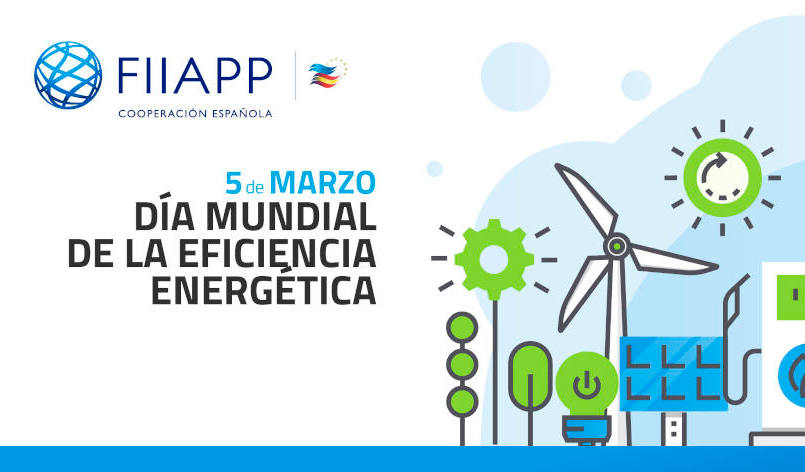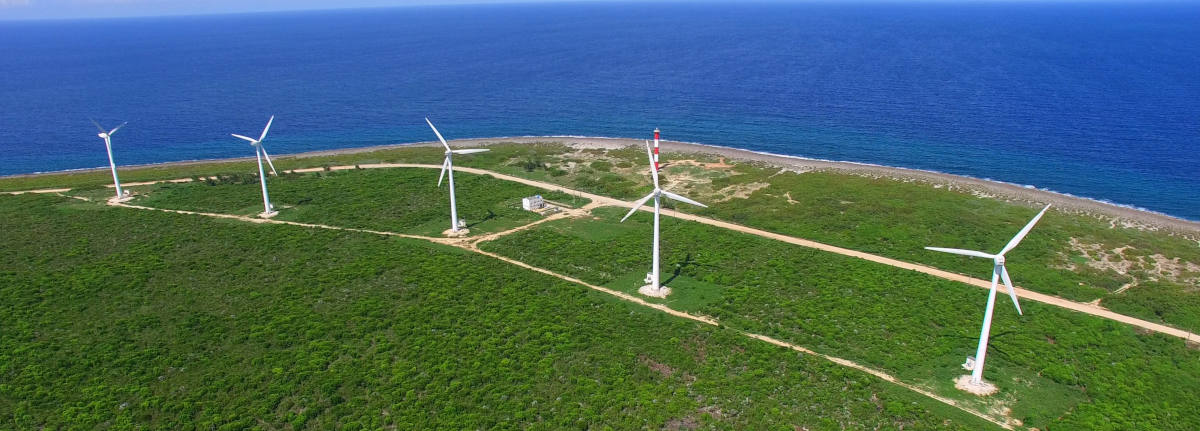-
05 March 2021
Category : Reportage
Energy efficiency to tackle climate change
After decades of energy inefficiency, technological innovations have led to some enormous improvements in the responsible use of energy. However, the pressing need to curb climate change requires more efforts in this area.

Energy efficiency means optimising the use of resources to produce energy. As well as consuming fewer resources, it means reducing emissions. This is essential to gradual decarbonisation and to keep the increase in the planet’s temperature to a maximum of 1.5ºC. Companies and individuals have become more acutely aware of the finite nature of fossil fuels, their increasing cost and their environmental impact.
The international community made a global commitment in the 2015 Paris Agreement and the 2030 Agenda. The goal for 2030 is to ensure that everybody has access to electricity and to increase energy efficiency and the use of renewable sources of energy.
This general objective is specified in two of the 17 Sustainable Development Goals (SDGs). Among the aims of SDG7 “Affordable and clean energy” is to double the global rate of improvement in energy efficiency from 2015 to 2030. As the UN Energy Progress Report points out, although things are improving, there is still much to be done. SDG11 “Sustainable cities and communities” also warns of the concentration of the population in cities and the need to develop adequate, energy efficient urban infrastructures.

To this end, in 2012 the European Union enacted a series of binding measures to promote energy efficiency with Directive 2012/27 / EU. In 2020, under the European Green Deal, the European Union committed to a more demanding objective of improving energy efficiency from 20% to 32.5% compared to 1990 levels.
With the 2030 Agenda and with European and Spanish cooperation as its point of reference, FIIAPP has been working on cooperation projects with public administrations around the world for more than 20 years. With the maxim of benefiting citizens, several of the projects implemented by the Foundation have included the promotion of public policies to foster energy efficiency among their objectives.
For example, under the EUROCLIMA + cooperation programme, we are currently working in collaboration with Paraguay to promote clean technologies and energy efficiency. As part of the “Promotion of the Efficient Use of Biomass in Paraguay” action, the Vice Ministry of Mines and Energy and the Ministry of Environment and Sustainable Development (MADES) are receiving support to develop a calculation tool for SMEs to carry out self-diagnosis of energy consumption and identify potential savings points.
In the field of Public Technical Cooperation, the team is working to design and run a national dissemination campaign targeting the agro-industrial sector. The purpose of this campaign is to instil the concept of energy efficiency and its benefits in economic, social and environmental aspects in the productive sector.
FIIAPP also works closely on energy efficiency matters with Cuban public bodies. Cuba has launched a new roadmap for the country to gradually incorporate renewable energy sources and work on energy efficiency. The aim is that by 2030 at least 24% of the energy generated will be renewable with better efficiency. This would mean saving 1.73 million tons of fuel per year and avoid releasing 6 million tons of CO2 emissions into the atmosphere.
One of the actions of the Cuba-EU II Expert Exchange programme aims to improve energy efficiency in the Cuban hospitality sector. Three specialists from the Refrigeration and Air Conditioning Institute (IRC) are taking part in a Master’s Degree in Energy Conversion Systems and Technologies, at the Rovira y Virgilio University in Tarragona.
Alexander Maura is working on his thesis on solar energy-based conversion systems in a hotel in an isolated area that generates its own electricity using fossil fuels, Ricardo Domínguez’s thesis explores the use of biogas for refrigeration and air conditioning purposes of a pig farm while Carlos Luis Izquierdo is designing a grid-connected photovoltaic system at IRC to boost renewable energy and reduce emissions.

‘Cuba Renovables’ is another of the projects managed by FIIAPP to promote energy efficiency among Cuban institutions. The project is part of the “Cuba Energy Support Programme”, implemented through a programme of cooperation between the EU and Cuba. Its aim is to contribute to the effective implementation of the ‘Policy for the prospective development of renewable energy sources and energy efficiency’ in Cuba and its regulatory framework.
The project supports the new national policy promote rational use of energy by reducing consumption and increasing savings. Cuban institutions have already launched different awareness campaigns for the population. Companies also play an important role and work is being done to promote the production of equipment for private and industrial use that is more efficient in saving energy.
These projects are an example of the effort of the international community, the European Union and Spain to offer joint responses through cooperation to global problems such as climate change. With the 2030 Agenda, the SDGs and the European Development Consensus as a guide, FIIAPP encourages public institutions to share their experience, steering them to generate results, forge relationships of trust and strengthen values in societies.
The views and opinions expressed in this blog are the sole responsibility of the person who write them.






